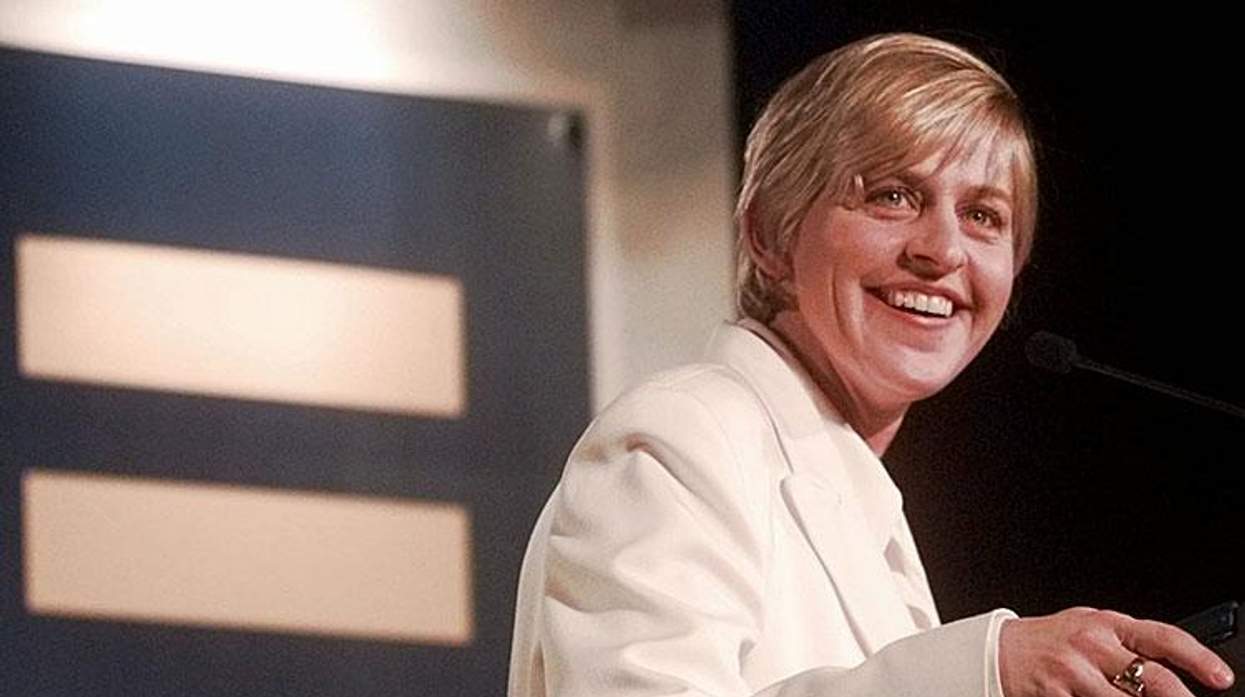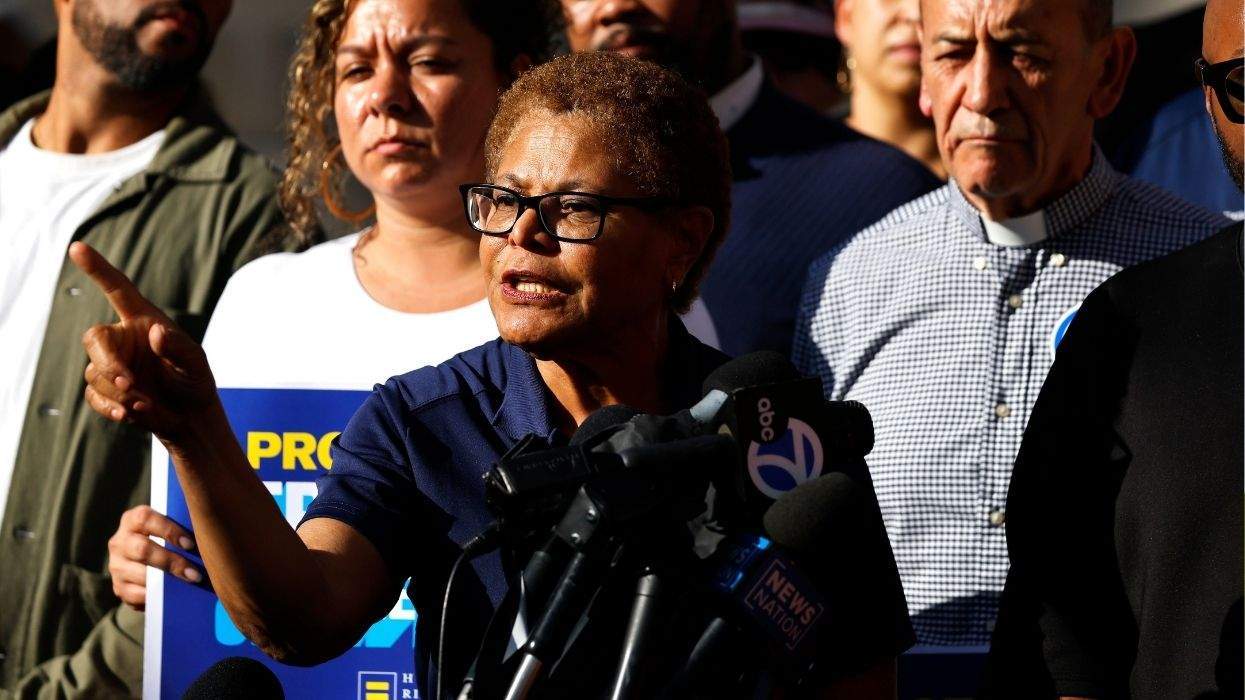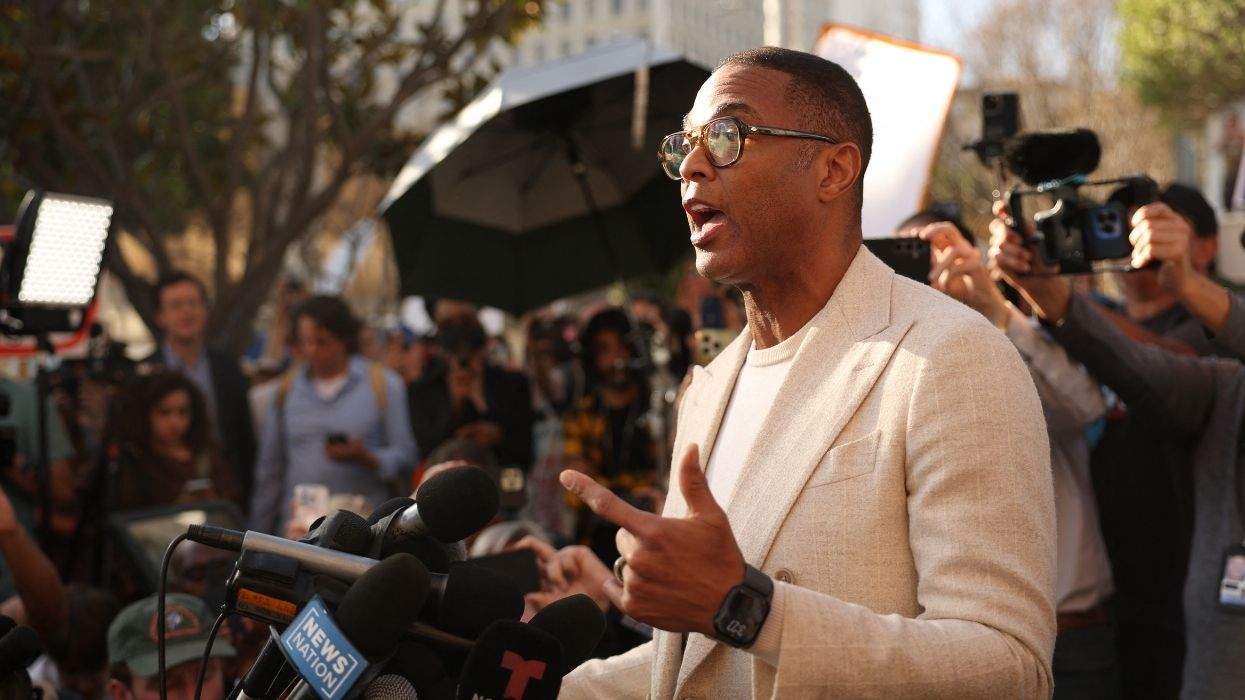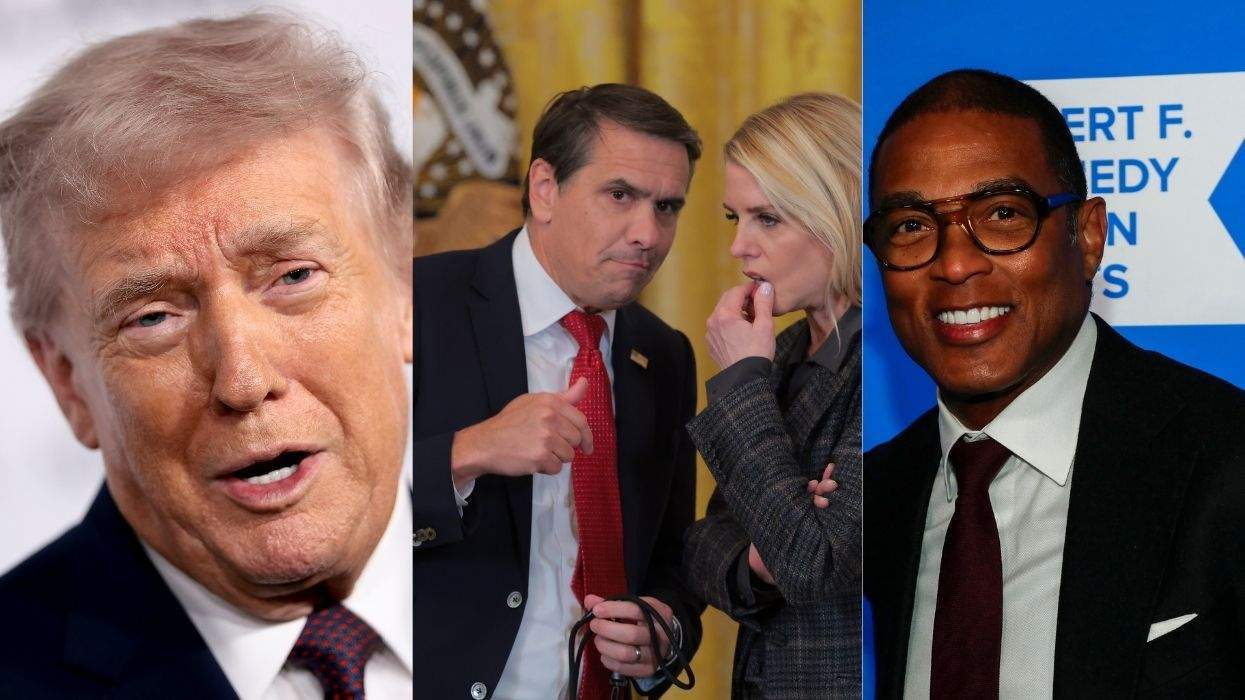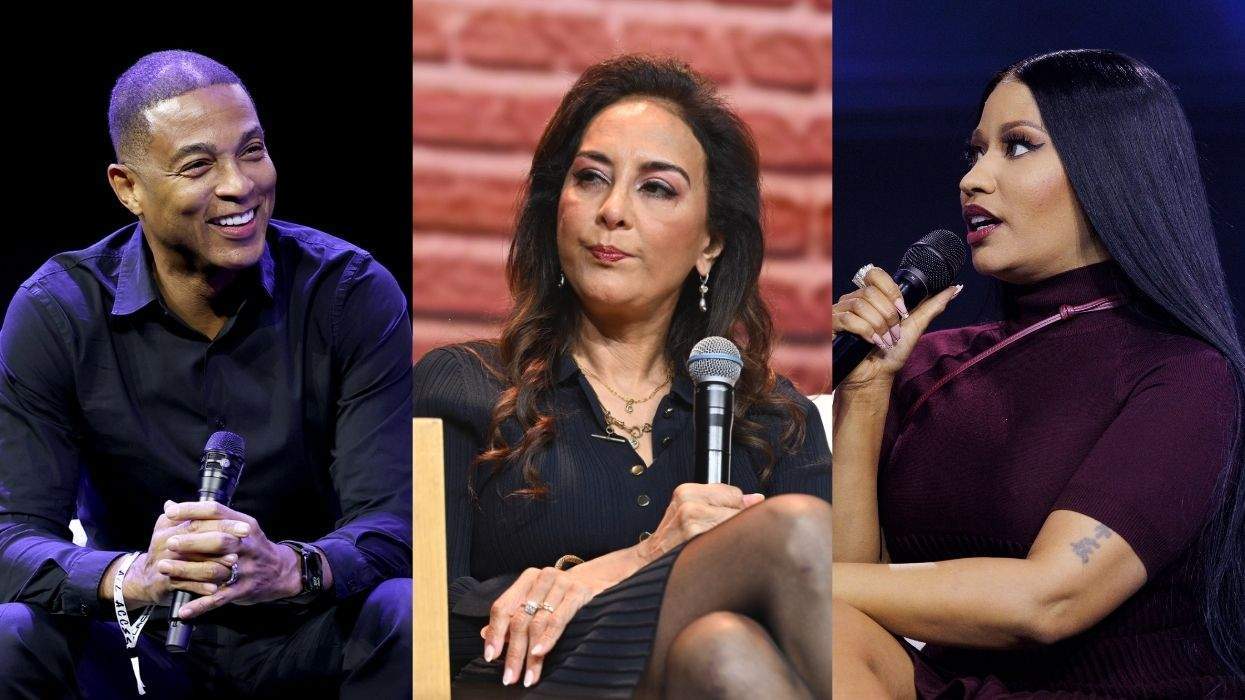This story is part of a series on challenges faced and victories achieved in the fight for LGBT equality. This battle continues, especially with Donald Trump as president-elect, but we won't win unless we learn from the past.
When Ellen DeGeneres came out in 1997 -- on the cover of Time magazine, in an interview on The Oprah Winfrey Show, and then in an episode of her ABC sitcom Ellen -- it was a watershed moment in culture. In "The Puppy Episode," she (and her character) were among the first to come out on a television show, an event that attracted a record number of viewers upon its airing.
Today, the impact of DeGeneres's coming out cannot be understated. When President Obama presented the teary-eyed talk show host with the Presidential Medal of Freedom in 2016, he underscored "just how much courage was required for Ellen to come out on the most public of stages almost 20 years ago."
Obama reminded America "just how important it was not just for the LGBT community, but for all us to see somebody so full of kindness and light -- somebody we liked so much, somebody who could be our neighbor or our colleague or our sister -- challenge our own assumptions, remind us that we have more in common than we realize, push our country in the direction of justice."
"What an incredible burden it was to bear, to risk your career like that. People don't do that very often," he said.
Indeed, 20 years later, in a post-marriage equality world, it is easy to forget that DeGeneres's ascent -- from coming out to media mogul -- was no crystal stair. Her coming out offered no guarantees to success. In fact, in the short term, there were setbacks. Her network, ABC, not having a playbook for what to do with a lesbian actor playing a lesbian character, placed a parental advisory on Ellen episodes. In 1998 the series was cancelled after ratings dipped.
However, DeGeneres's coming-out, cancellation, and comeback offer invaluable lessons to today's LGBT community, members of which are dreading what life could become under President Donald Trump. Antigay cabinet picks, the call for nationwide "religious freedom" discrimination, and a spike in hate crimes have given many justified causes for concern.
How can DeGeneres help LGBT America prepare for the worst? First, she is a living testament of just how vital visibility is. When anyone with a prominent platform comes out, he or she gives inspiration to anyone still struggling in the closet.
Jim Halterman, TV Guide Magazine's West Coast bureau chief, remembers how significant DeGeneres's coming-out was to his life.
"I wasn't out yet," the gay journalist said. "Stars weren't coming out then. Personally, it was something to admire and really wrap my head around, [thinking], Maybe that's something I can do."
In addition to opening closet doors of possibility for LGBT folks, a celebrity's coming-out can also normalize queer people for those who don't -- or think they don't -- know any members of this community. Political victories like same-sex marriage, which in recent polls is now supported by a clear majority of Americans, would not be possible without the visibility and vocalness of out public figures. Red states and rural areas where LGBT rights are under attack can especially benefit from such exposure.
"We have to remember there are people that don't [know many out people] because they don't live in L.A. or New York and are in small towns," said Halterman, who points to the benefits of an out television star like Neil Patrick Harris posting Instagram photos of his husband and kids. "Hopefully somebody sees that and goes, 'That's great. There's a family, and it just happens to be two men or two women,' and it's not such a shock."
Since DeGeneres's coming-out, other media figures -- many inspired by her courage and success -- have also left the closet. However, Hollywood's glass closet unfortunately endures. Colton Haynes, the 28-year-old Teen Wolf star who came out last year, attested to this in an Out magazine interview addressing the emotional harm it inflicted throughout his career.
While Halterman would never force an actor or other public figure out of the closet, he does recognize and remind them of the power they could have to help advance LGBT rights in the coming years.
"I do respect everybody's own journey," he said. "But when you do have a platform, I always think you should use it for whatever message you want to get out there. Because the more visibility, the better the reception of the message."
DeGeneres provided a recent example of how to deliver that message last week, when she disinvited the antigay gospel singer Kim Burrell from her show. Instead, she had a conversation with Hidden Figures producer Pharrell Williams, who had originally been scheduled to sing with Burrell, about prejudice and divisiveness.
"As someone who has received a lot of hate and prejudice and discrimination because of who I choose to love, I just don't understand anyone who has experienced that kind of oppression [and would inflict it on others]," said DeGeneres, providing viewers with not only a platform to hear this much-needed conversation about bias, but also a first-person perspective on its harm.
DeGeneres's bravery in coming out and being vocal is undeniable. But as they say, it takes a village. Her success also required the support of Hollywood power players behind the scenes who were willing to take a risk. Over two decades ago, the network ABC was not obliged to approve and air DeGeneres's coming-out story. But it did so anyway. While the show was canceled a year later due to a drop in ratings, the courage of producers and executives to stand by and promote their lesbian star changed what was possible for storylines on television.
This can serve as an example to others in present-day Tinseltown who may have reservations about pushing the envelope on social issues. In fact, Trish Bendix, the former editor of AfterEllen who is now editor in chief of Go magazine, said Hollywood should push even further during a Trump administration.
"We need to get gayer," said Bendix, who noted that Ellen's success required "support not just from our community being so vocal and so active, but allies and people that are supportive of our movement. And also just television itself. I think that networks, especially cable, [realized after Ellen] that people wanted to see reflections of themselves."
"What I really admire and respect about Ellen is she has never tried to disregard her gayness," Bendix said. "She will bring Portia on her show, she will talk about gay issues, but she doesn't lead with it in a way that [will] put people off. She has this really great balance."
Fortunately, Hollywood had been in the middle of a conversation about diversity before Trump's win. Movements like the #OscarsSoWhite backlash, Transparent's Jeffrey Tambor blasting casting discriminating against transgender people at the Emmy Awards, and inquiries into gender disparities in wages and employment have awakened many to the fight for representation. The election and its aftermath have proven this conversation is necessary for many vulnerable communities, who feel voiceless after a racist, sexist, and xenophobic campaign that the Republican candidate rode to power.
In response, Hollywood, LGBT people, and their allies -- in addition to being gayer -- must be louder in demanding rights in the face of adversity. "We clearly have to be very vocal and forthright about the things that we deserve, desire, and demand, because we are not going to get them otherwise," Bendix affirmed.
"Everyone who is part of the liberal, pro-LGBT, pro-inclusion movement is feeling our responsibility, which is maybe something that wouldn't have happened if Hillary wouldn't have won. So arguably, it's a good thing," she added.
Meryl Streep is one example of a figure that has heard this call to action. In a stirring speech, the icon used her platform at the Golden Globes last weekend to call out Trump's crude mockery of a differently abled reporter.
"This instinct to humiliate, when it's modeled by someone in the public platform, by someone powerful, it filters down into everybody's life, because it kinda gives permission for other people to do the same thing," she said. "Disrespect invites disrespect, violence incites violence. And when the powerful use their position to bully others, we all lose."
In addition to Streep, the Golden Globes gave a platform to Moonlight, which was honored with Best Picture for Drama. The award not only gives credit it an extraordinary film. In honoring the coming-of-age story of a black gay boy in Miami, the Hollywood Foreign Press Association also highlighted the struggles faced by intersectional communities, providing another example of how the entertainment industry can help effect change.
Television already has many productions that are moving the needle. Bendix points to Hulu's Casual, Amazon's Transparent, Seeso's Take My Wife, and Netflix's Orange Is the New Black and Sense8 as examples of shows that have already amped the volume regarding queer representation. Halterman, looking to network television, can't give enough praise to ABC's The Real O'Neals, a sitcom about a family with a gay son that he sees as carrying Ellen's torch. He lauded its humor, its placement on broadcast television, and its message that queer people have "become part of the fabric of our country." Hollywood, in considering which storylines to green-light, possesses the power to help keep this fabric from tearing.
"The more you see something you don't understand, the more you'll understand it," said Halterman, as a lesson that can be learned from DeGeneres. "My only hope is the stories continue to be told, even if the world changes around us."
